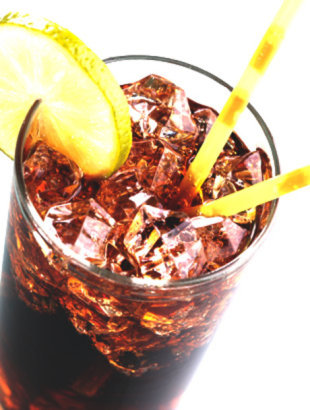Sweet Sodas and Soft Drinks May Raise Your Risk of Depression, Study Finds
 Is your diet soda making you depressed? (Photo: Thinkstock)
Is your diet soda making you depressed? (Photo: Thinkstock)
We know that sugary sodas aren't good for our bodies; now it turns out that they may not be good for our minds, either. A new study of more than 260,000 people has found a link between sweetened soft-drinks and depression-- and diet sodas may be making matters worse.
Related: Diet Soda May Be Making You Fat
Americans drink far more soda than people in other countries -- as much as 170 liters per person per year (no wonder New York CityMayor Michael Bloomberg banned super-sized servings of the stuff). But the impact of this study isn't limited to the United States. "Sweetened beverages, coffee and tea are commonly consumed worldwide and have important physical-and may have important mental-health consequences," study author Dr. Honglei Chen, an investigator at the National Institute of Environmental Health Sciences,said in a statement.
Related: Are the Health Risks of Soda Really That Bad?
The study, which was released on Tuesday and will be presented at the American Academy of Neurology's annual meeting in March, involved 263,925 people between the ages of 50 and 71. Researchers tracked their consumption of beverages like soda, tea, coffee, and other soft drinks from 1995 to 1996 and then, 10 years later, asked them if they had been diagnosed with depression since the year 2000. More than 11,300 of them had.
Participants who drank more than four servings of soda per day were 30 percent more likely to develop depression than participants who did not drink soda at all. People who stuck with fruit punch had a 38 percent higher risk than people who didn't drink sweetened drinks.
And all that extra sugar isn't the actual problem: The research showed that low-calorie diet sodas, iced teas, and fruit punches were linked to an slightly higher risk of depression than the high-calorie stuff. Researchers say that the artificial sweetener aspartame may be to blame.
"Our findings are preliminary, and the underlying biological mechanisms are not known," said Chen. The study found an association but could not conclusively determine whether sodas and other sweet soft drinks cause depression, even after taking into account factors like age, gender, education, smoking, body mass index (BMI) and other issues. Still, the results "are intriguing and consistent with a small but growing body of evidence suggesting that artificially sweetened beverages may be associated with poor health outcomes."
But there's a bright side for those who can't do without the caffeinated jolt of their daily sodas. Adults who drank coffee had a 10 percent lower risk of depression compared to people who didn't drink any coffee, according to the study. That reinforces findings from a 2011 study published in the Archives of Internal Medicine, which said that women who drink fully caffeinated coffee have alower risk of depression than non-coffee drinkers.
"Our research suggests that cutting out or down on sweetened diet drinks or replacing them with unsweetened coffee may naturally help lower your depression risk," said Chen. "Coffee contains large amounts of caffeine, which is a well-known brain stimulant."
Chen cautions that, if you've been diagnosed with depression, cutting your soda intake isn't necessarily going to help. "More research is needed to confirm these findings," Chen said, "and people with depression should continue to take depression medications prescribed by their doctors."
Also on Shine:
Can Diet Soda Make You Sick? A Fat-Blocking Pepsi? Really? 6 Reasons to Kick Your Soda Habit
No comments:
Post a Comment
Note: Only a member of this blog may post a comment.